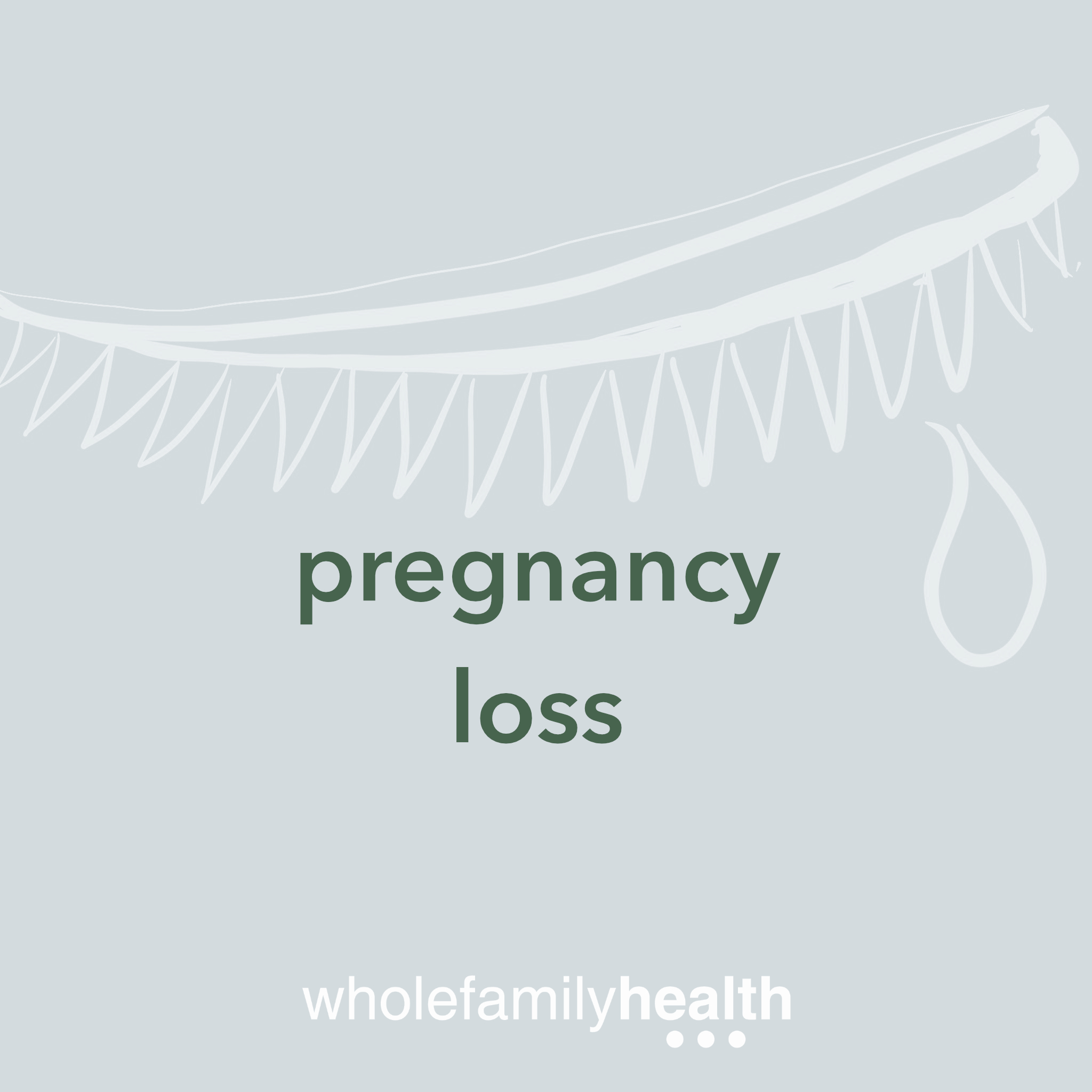Pregnancy Loss: How to Prevent it
Posted by Dr. Alda Ngo

What is Pregnancy Loss
Miscarriage Grief
How a propos that October should be Pregnancy and Infant Loss Awareness Month. Autumn’s inward turn as the leaves change colour and fall, reflecting Chinese Medicine’s association of the season with grief and sadness.
Ariel Levy, author of “The Rules Do Not Apply,” speaks to grief in her memoir about how her life was forever changed when she lost her baby at 19 weeks, alone in a Mongolian hotel room. She speaks to how she is reinvented through great loss.
I am kind of gripped by her description of grief. She speaks about her experience of the ‘body’s betrayal,’ and ‘living in a tunnel of grief- not being able to see outside of it, and feeling isolated, because it was nobody else’s reality but her own.’
I can relate to this. I had 2 consecutive miscarriages in my 7-plus years of trying to conceive. I’ve had my fair share of rejection, failure, disappointment and heartbreak, but for me- nothing quite touches the existentially immeasurable sadness of the love lost in miscarriage. Despite knowing how common it is, I still felt alone in it, which I suppose is fair – as nobody can be inside my experience but me.
Causes of Miscarriage
About 12 – 15% of confirmed pregnancies end in miscarriage, but an estimated 30 – 60% of all conceptions end within the first 12 weeks (up to half of these pregnancies are not even detected at all.)
The risk of miscarriage increases with age, which can be attributed to poor egg, sperm and/or embryo quality. Other causes can include abnormality of the uterus, poor blood supply, inflammation or infection. Autoimmune factors, hormone disorders (including thyroid disease or diabetes) or clotting abnormalities can also play a role.
Exposure to environmental toxins, smoking, alcohol and high coffee intake also increase the risk of miscarriage.
Recurrent Pregnancy Loss
Recurrent pregnancy loss (RPL) used to be defined as the occurrence of 3 or more consecutive pregnancy losses, but the American Society of Reproductive Medicine has recently redefined it as 2 or more consecutive losses, ending before 20 weeks.
Most of the time, miscarriage is due to a random chromosomal abnormality. However, if you have 2 or more losses in a row your doctor can order you an RPL panel to rule out any of these other physiological factors.
What can we do to prevent miscarriage?
I want to tread lightly here, because although there is much we can do to optimize the creation of a healthy pregnancy, ultimately the final outcome is out of our hands.
In my experience, an important part of this process is identifying what we have control over, taking care of these pieces and resting in knowing that we are doing all that we can while practising with deep acceptance of every outcome.
While I know that we often feel the need to find a reason, or even place blame (often on ourselves), to try to make sense of a pregnancy loss, so much of the process for me has been to practice surrendering to the mystery of it. Even when chromosomal abnormality was confirmed in my case, it didn’t ease the heartache. But breathing and making space to make peace with all the stuff that I couldn’t understand helped.
So with this in mind, I will speak to how Acupuncture, Chinese medicine and lifestyle changes can help to prevent pregnancy loss.
Blood Flow to the Reproductive Organs
Acupuncture improves blood flow to the reproductive organs. This helps to nourish and optimize the environment that oocytes and sperm grow in, supporting them to grow to their peak potential. With optimal egg and sperm, we are able to create the healthiest viable embryo.
With increased blood flow to the uterus as well, this helps to nourish the developing embryo and fetus.
Regulation of inflammation, hormones and stress
Acupuncture also helps to regulate inflammation, balance hormones and decrease stress.
Within fertility research, acupuncture has been shown to benefit hormone response and is associated with lower miscarriage rates.
Threatened Miscarriage
50-70% of miscarriages are due to chromosomal abnormalities, and in the case of threatened miscarriage, there is not much we can do to save a pregnancy that is ultimately not viable. In these cases, we play a supportive role and acupuncture and Chinese herbs help to minimize unwanted complications throughout the miscarriage process.
However, if the pregnancy is viable, and the threatened miscarriage is due to one of the other reasons that fall into the remaining percentage (blood clotting issues, hormone dysfunction, autoimmune factors, inflammation, etc..) acupuncture and Chinese herbs can help.
If there is any spotting or bleeding, acupuncture and moxibustion can help to slow and even stop the bleeding.
Supported Care
Research indicates that when women with recurrent miscarriage receive supported care (including counselling, reassurance, provision of information and practical support) that this care leads to beneficial outcomes with increased live births in comparison to a control group. Women in this study also requested support in the form of non-medical support, including advice about diet, lifestyle, relaxation tools and feeling heard.
Mindfulness, Yoga and Acupuncture
Please join us for our upcoming 6 week Mindful YogaPuncture for Fertility series. Where the benefits of Mindfulness meditation, Yoga and Acupuncture will help to support your fertility, and help you to release stress and recover a sense of peace.
Space is limited!
For more information or to register call 780-756-7736 or email info@wholefamilyhealth.ca
